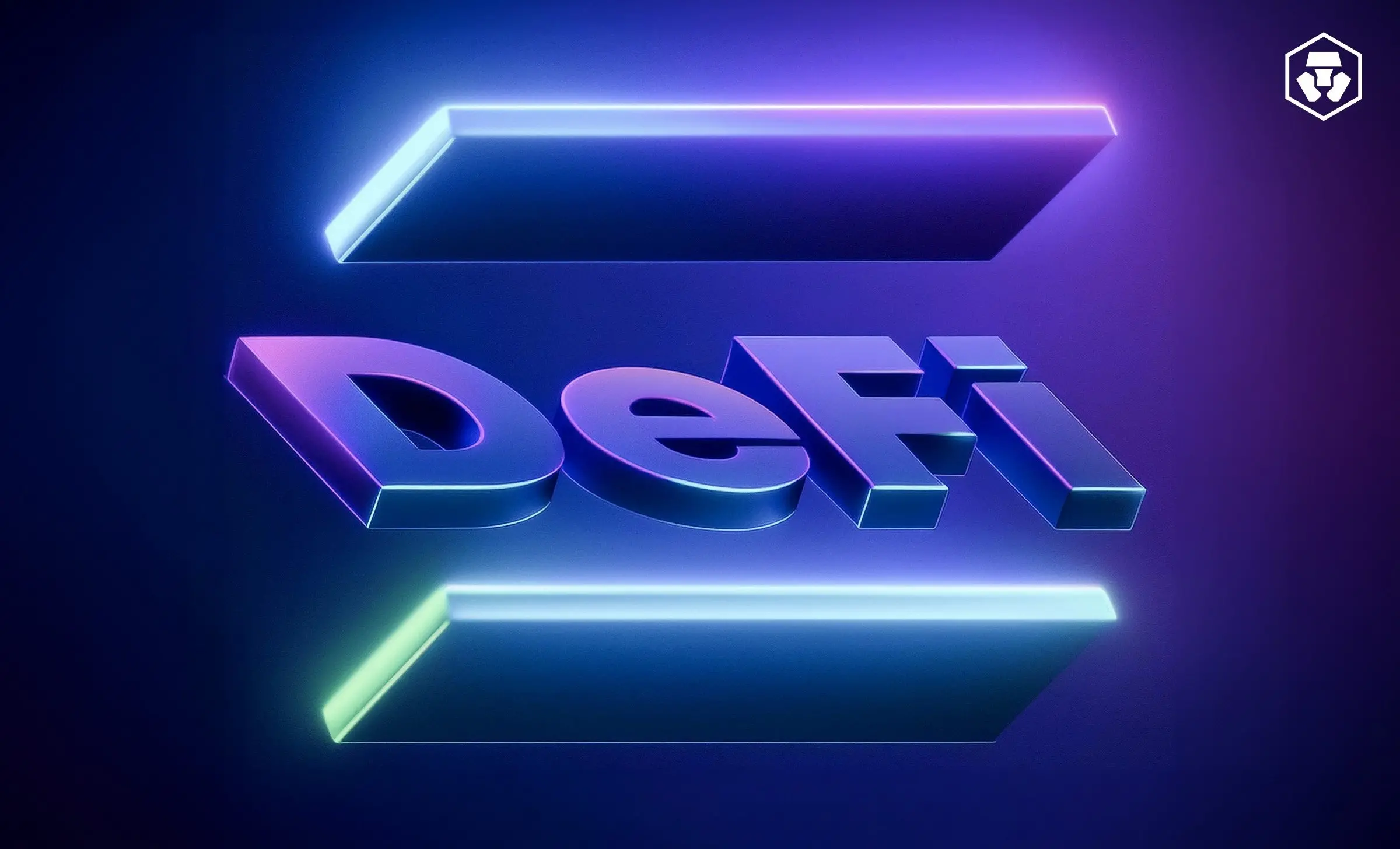Inventory of the Current Development Status of Privacy Public Chain Ecosystem: Generally in an Early Pioneer Stage
Original Title: "Privacy Public Chain Ecosystem Overview: Generally in Early Pioneer Stage, Ecological Development Relatively Slow"
Author: allen, PANews
The sanctions against the decentralized mixer Tornado Cash continue to escalate, once again bringing the issue of "privacy" in the crypto industry to the forefront of discussion. Although users can protect their real identities to some extent through decentralized crypto wallets and applications, this privacy also brings regulatory pressure to the entire crypto industry. For instance, criminals can use decentralized protocols for money laundering and other illegal activities, which is a primary reason for the U.S. Treasury's actions against Tornado Cash.
While regulators crack down on anonymous transactions by illegal actors, the crypto world, much like real life, also requires a certain level of privacy. Just as no one in the real world wants their financial status or activity trails to be known by others, this applies equally to crypto users. In addition to users' demand for privacy, decentralized protocols also face similar issues. For example, the transparent lending conditions on lending protocols provide opportunities for large players to maliciously short or long, seizing liquidation profits through "precision strikes."
Recently, leading DeFi protocols such as dydx, Aave, and Uniswap have successively banned certain wallets associated with Tornado Cash. This includes wallets belonging to well-known crypto figures like Shen Yu and Sun Yuchen, which were implicated due to anonymous "poisoning." Although Aave has lifted its ban, and Uniswap has implemented bans on the front-end interface, it undoubtedly serves as a wake-up call, highlighting the importance of privacy protection for users' on-chain activities.
Due to the traceable nature of blockchain ledger data, as well as the immature development of related technologies (such as zero-knowledge proofs) and insufficient user awareness, the aforementioned privacy issues have not been effectively resolved. Compared to other sectors, the overall development of the privacy sector has been relatively slow. However, from the perspective of institutional financing, this sector has consistently performed well and has attracted the attention of top VCs in the industry. For instance, the privacy system Espresso Systems completed a $32 million financing round led by Sequoia Capital in March 2022, the L2 privacy solution Aztec Network completed a $17 million Series A financing round led by Paradigm in December 2021, and the data privacy platform Aleo completed a $28 million Series A financing round led by a16z in April 2021.
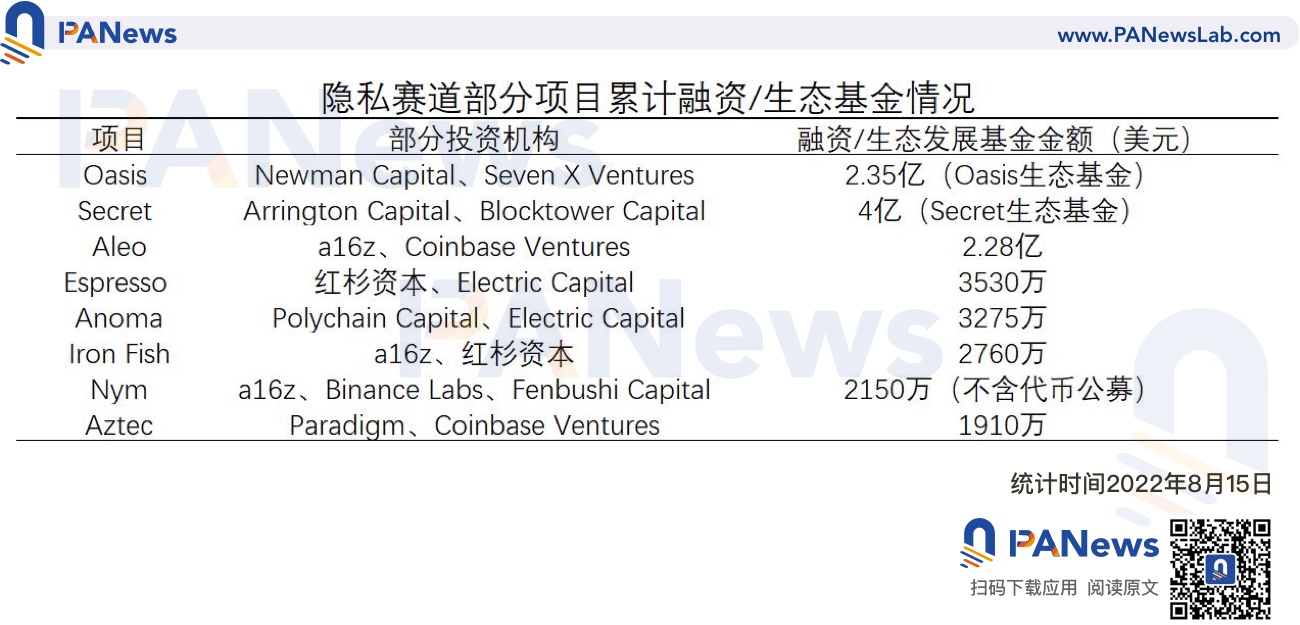 According to industry classifications of the privacy sector, this field can be roughly divided into four major segments: privacy computing networks (such as Oasis Network), privacy trading networks (such as Secret Network), privacy applications (such as Tornado Cash), and privacy tokens (such as Zcash). Compared to privacy computing, which encompasses data generation, collection, storage, analysis, utilization, and destruction,
According to industry classifications of the privacy sector, this field can be roughly divided into four major segments: privacy computing networks (such as Oasis Network), privacy trading networks (such as Secret Network), privacy applications (such as Tornado Cash), and privacy tokens (such as Zcash). Compared to privacy computing, which encompasses data generation, collection, storage, analysis, utilization, and destruction,
privacy trading networks are more focused on protecting the privacy of on-chain transaction data. The former serves as a more foundational infrastructure that can be integrated with big data or AI for applications in non-crypto sectors like healthcare. Previously, PANews also published an article detailing the four major representative projects in the privacy sector.
Compared to privacy tokens and privacy applications, crypto users currently need more privacy protection at the smart contract application layer to prevent the on-chain activities of wallet addresses from being exposed and tracked. Otherwise, incidents like "DeFi protocols banning addresses" may happen again. This article will focus on the ecological development of privacy networks such as Oasis Network, Secret Network, and Aztec, as the overall ecosystem is still relatively small and in the "pioneering" stage, with a focus on Dapps in the DeFi and NFT sectors.
Secret Network
Secret Network was originally named Enigma and planned to develop within the Ethereum ecosystem. However, due to performance reasons, it joined the Cosmos ecosystem and became an independent application chain focused on privacy, subsequently rebranding to Secret Network. On January 20, Secret Network announced the launch of a $400 million ecosystem fund to strengthen ecological construction, with investors including Alameda Research, Dragonfly Capital, and Fenbushi Capital. According to official information, the Secret Network ecosystem currently has about 28 Dapps (including those not officially launched), covering DeFi, NFT, and GameFi, with native projects dominating the ecosystem, and the DeFi sector accounting for approximately 50% of the entire ecosystem.
DeFi
Currently, the Secret ecosystem's DeFi sector has officially launched 9 protocols and Dapps, including decentralized exchanges (SiennaSwap, SecretSwap), lending (SiennaLend), liquid staking (StakeEasy), cross-chain bridges (Secret Bridges), privacy transfers (BlackBox), one-stop DeFi platforms (Shade Protocol, BtnGroup), asset management platforms (Selenian), and peer-to-peer auction platforms (Secret Auctions).

According to DeFi Llama data (which has recorded 4), as of August 15, the TVL of Secret Network is approximately $11 million, with Sienna Network being a protocol focused on DeFi privacy, having launched two products: SiennaSwap and SiennaLend. Sienna Network's TVL is approximately $7.5 million, accounting for about 62% of Secret Network's total TVL. SecretSwap is the first DEX with privacy protection against front-running trades, with a TVL close to $4 million, accounting for about 33% of the total TVL of Secret Network.
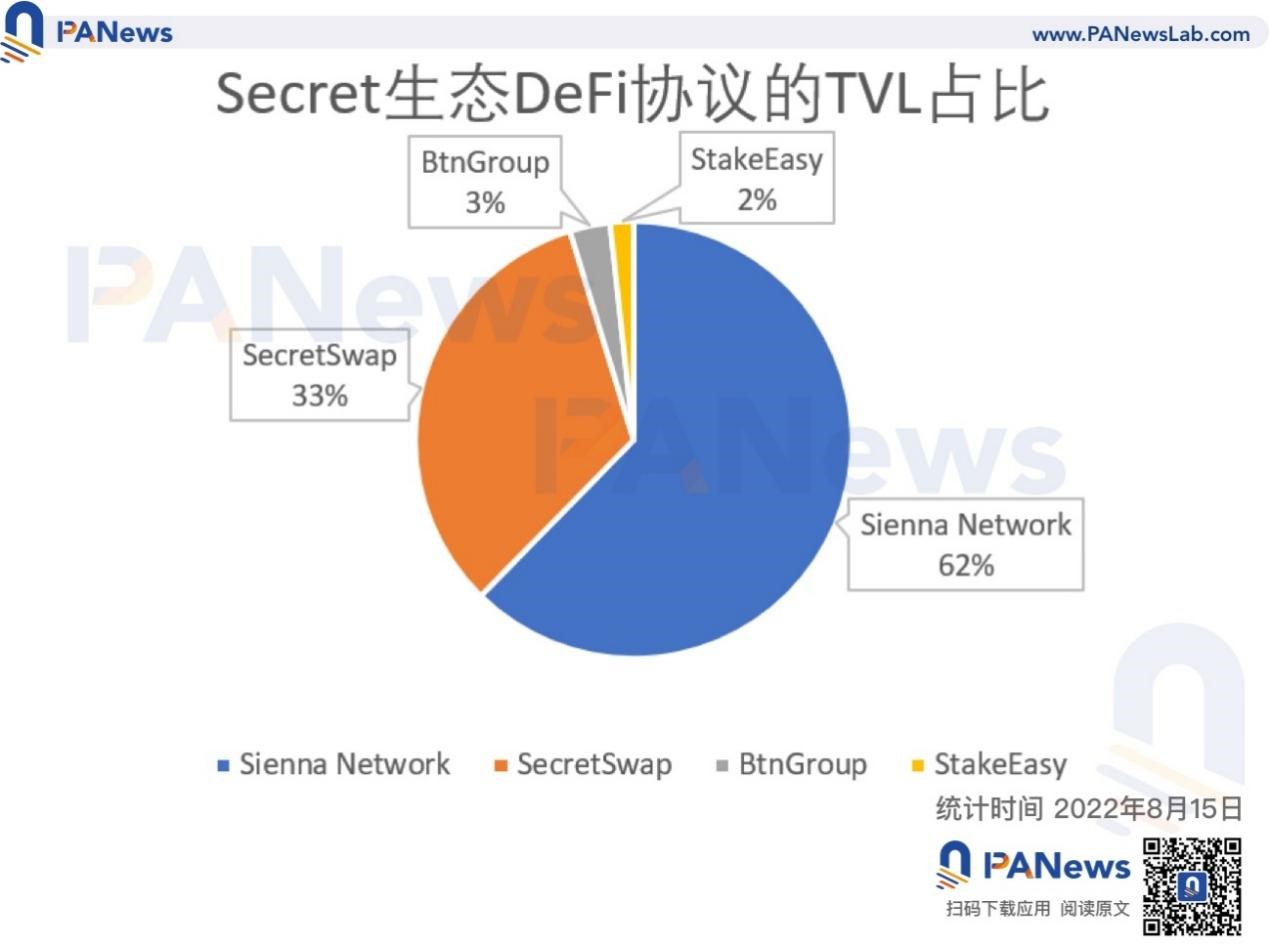
Additionally, there are several DeFi projects in the testing or development stage, including the DEX Polymer.fi, Shinobi targeting BTC applications on Secret Network, Serenity Shield providing digital asset protection, the first data trading market in the Secret ecosystem, DataVault, and the privacy-protected value storage project Amber.
NFT

Stashh is the first NFT trading platform on Secret Network, supporting art, collectibles, sports, music, video, etc. Currently, the highest total transaction volume NFT series on this platform is OG Anons, amounting to approximately $1.4 million.
V-IRL is a platform aimed at bridging the virtual and real worlds through NFTs, allowing users to convert digital NFTs into physical items. For example, if a user purchases a pair of NFT sneakers on this platform, they can redeem it for a real pair of sneakers.
Legendao is a play-to-mint NFT platform launched by SCRT Labs, designed to reward users with unique NFT rewards through gamification.
ActiList is an NFT auction platform currently in its testing phase.
In addition to DeFi and NFTs, the Secret ecosystem also involves other sectors, such as the gaming platform onenet., the combat game Secret Heroes, the multi-role card game Secret Dreamscape, the DAO creation platform SecretDAO, the communication tool Alter, the content encryption tool Fardels, and the privacy-enabled distributed storage project JACKAL.
Oasis Network
Oasis Network is an early-established privacy network founded in 2018 by Professor Song Xiaodong from the University of California, Berkeley. The network adopts a modular architecture, separating the consensus and smart contract execution layers into consensus layers and ParaTimes layers to address network performance issues. Oasis Network received early investments from well-known institutions such as a16z, Binance Labs, Polychain Capital, and Pantera Capital. Recently, on May 17, it announced an additional investment of $35 million from Newman Capital, Seven X Ventures, and other investment institutions, bringing the total amount of its ecosystem development fund to $235 million.
Compared to Secret Network's focus on protecting the privacy of on-chain data, Oasis Network is also continuously collaborating with real-world enterprises to leverage blockchain technology for data privacy protection in real life. For instance, Oasis Network announced a partnership with Meta in November 2021 to promote AI computing applications.
According to Oasis Network's official information, the ecosystem currently covers mainly DeFi and NFT sectors, with approximately 33 Dapps in the DeFi sector, including DEXs, lending, yield aggregators, oracles, and cross-chain bridges. The leading DeFi protocols are all native projects of this ecosystem.
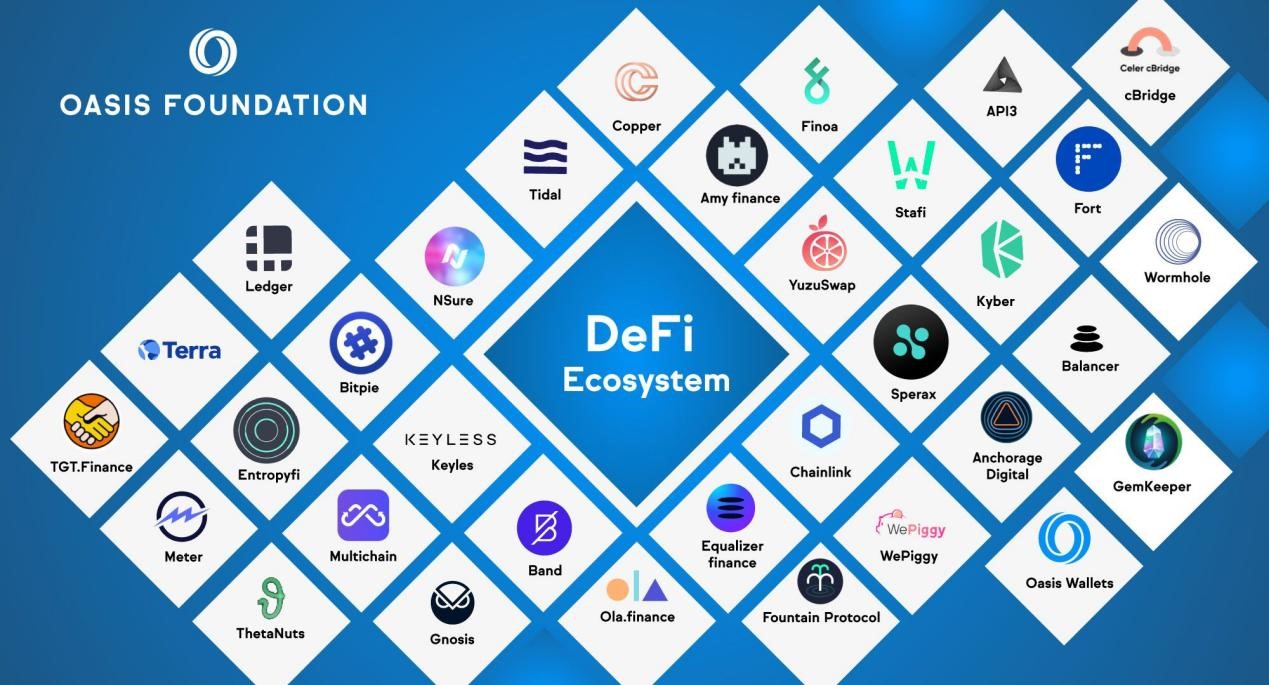
According to DeFi Llama data (which has recorded 13), as of August 15, the total TVL of the Oasis Network is approximately $30 million, with the top five applications accounting for nearly 99%, including 3 decentralized exchanges, 1 lending protocol, and 1 yield aggregator. The DEX ValleySwap and YuzuSwap rank first and second in TVL, with the former's TVL around $20 million, accounting for about 67% of the entire ecosystem, while the latter's TVL is approximately $4.6 million, accounting for about 15% of the ecosystem. The third-ranked lending protocol is Fountain Protocol, with a TVL of about $4 million, accounting for approximately 14% of the ecosystem.
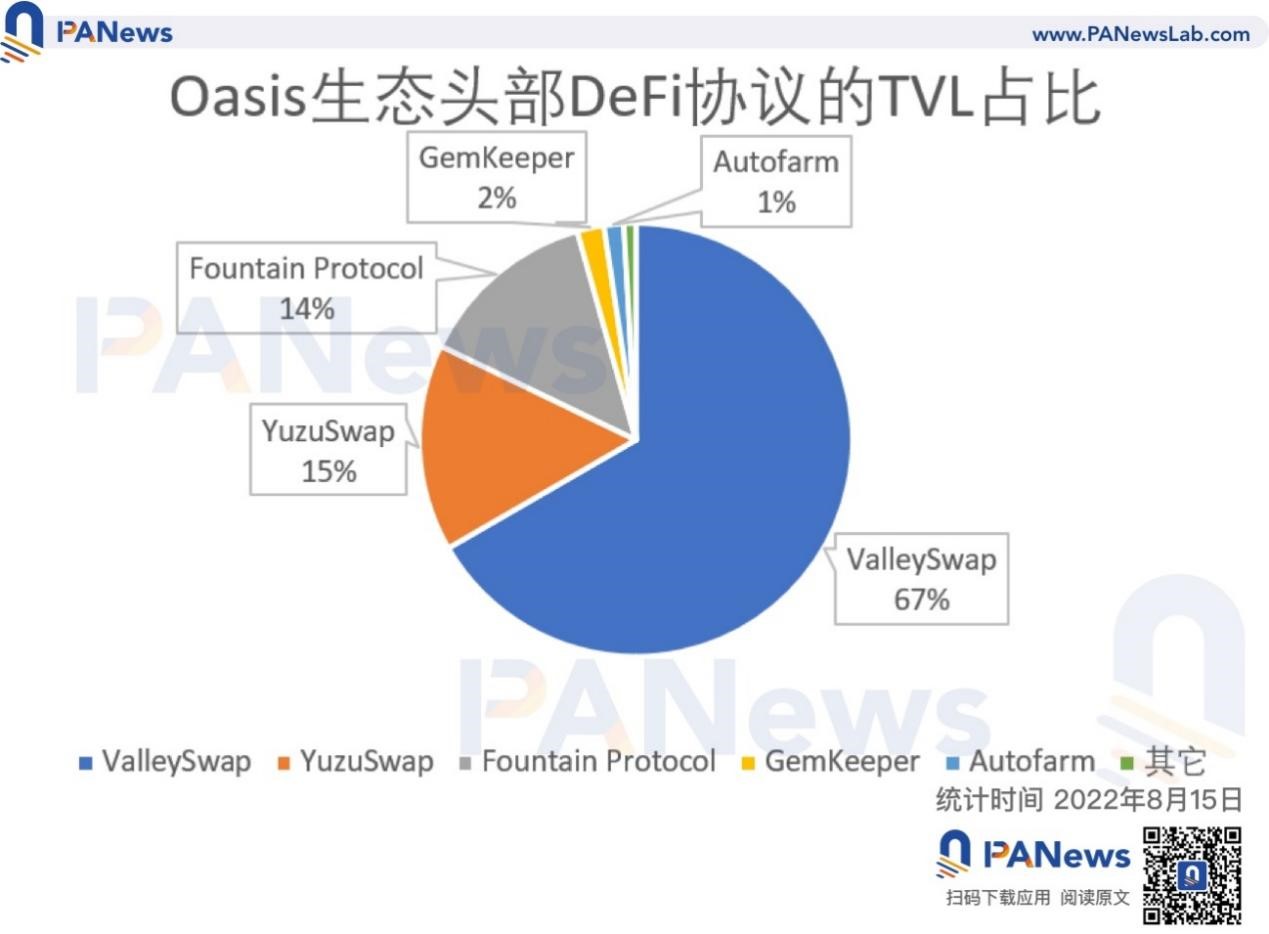
NFT

MetaMirror is the first NFT trading market in the Oasis ecosystem, currently listing 21 NFT projects, with the largest total transaction volume NFT series being AI ROSE, amounting to approximately $600,000.
tofuNFT is a multi-chain NFT trading platform currently supporting 27 blockchain networks, including Ethereum, BNB Chain, Avalanche, Arbitrum, Oasis, and others.
Rosart is an NFT trading platform funded by the Oasis ecosystem accelerator program, which is still in the early stages of development and has only launched its first NFT launchpad.
Aleph Zero
Aleph Zero is a privacy public chain based on Directed Acyclic Graph (DAG) technology, utilizing privacy structures developed with ZK-SNARKs cryptography and secure multi-party computation (sMPC). Aleph Zero completed a $14.8 million financing round in November 2021 and subsequently raised $1.5 million in a seed round in January 2022, with investors including Jun Capital, Genblock Capital, Supernova, and PetRock Capital.
Currently, the Aleph Zero ecosystem is also in the early stages of development, with approximately 12 Dapps in its network, covering DeFi, NFT, oracles, browsers, wallets, identity management, etc. Among these, DeFi and wallet applications hold a higher weight, accounting for about 58%. DeFi applications include the DEX PanoramaSwap, Common, and the lending protocol CLST.
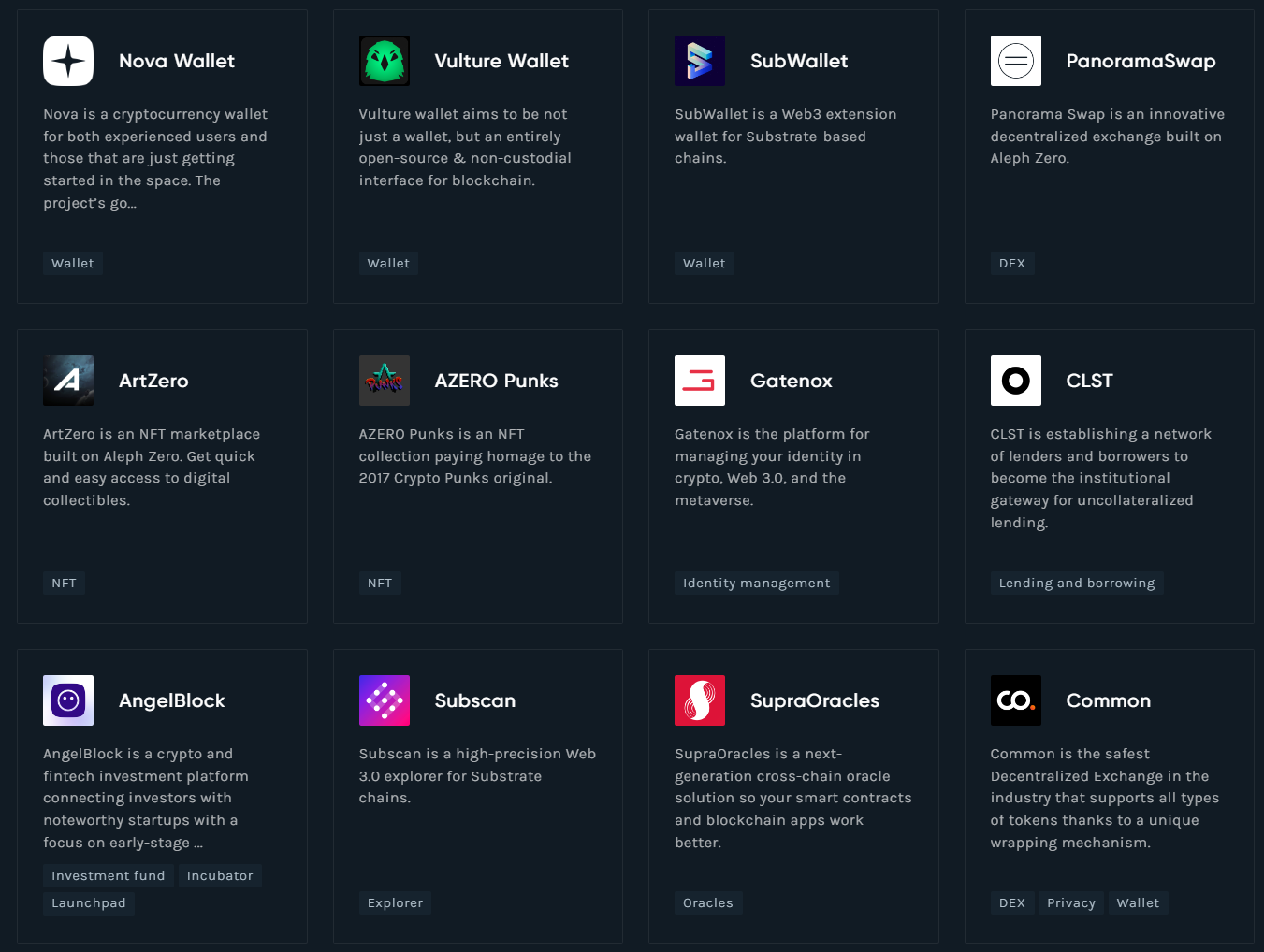
Aztec
Aztec Network is an Ethereum Layer 2 solution focused on privacy, ensuring both scalability and privacy through zero-knowledge proof technology zkSNARK. Aztec Network completed a $17 million Series A financing round led by Paradigm in December 2021, with other investors (including those from other financing rounds) including Coinbase Ventures, IOSG Ventures, and Vitalik Buterin.
On July 7, Aztec Network officially launched the Aztec Connect mainnet, providing privacy protection for DeFi transactions. Aztec Connect will allow anyone to add privacy to Ethereum applications through bridging contracts (connecting Ethereum smart contracts to Aztec's underlying Rollup technology interface) or allow developers to integrate their applications with Connect using a software development kit (SDK).
Currently, the Aztec Network ecosystem has only launched the zk.Money application, allowing users to encrypt transfer data. It has also integrated with some DeFi protocols, including the liquid staking protocol Lido and the fixed-rate protocol Element Finance, providing privacy protection for users' interactions with these protocols. In the future, it will also integrate with leading lending protocols such as Aave and Compound.
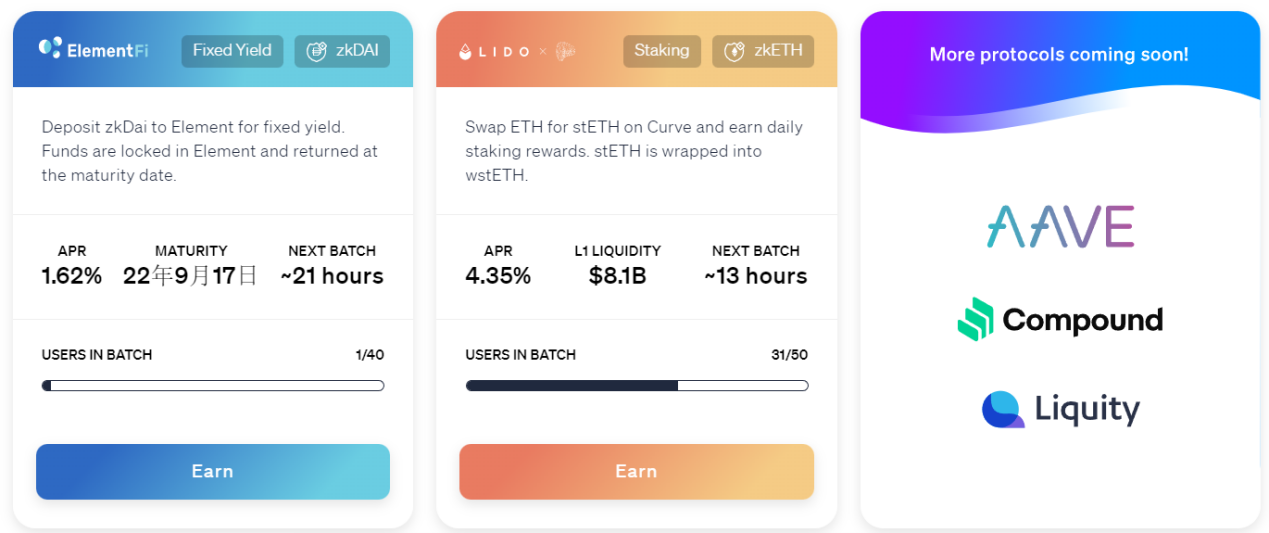
Findora
Findora is a foundational public chain dedicated to solving issues of scalability, interoperability, and privacy. It achieves selective disclosure of information through zero-knowledge proofs and secure multi-party computation technology to protect data privacy. In August 2020, Findora announced the completion of a new financing round of tens of millions of dollars, led by Polychain Capital, although the specific amount was not disclosed.
Like Oasis, Findora is also an early-established privacy network, but compared to the former, Findora's ecosystem still has a certain gap. In October 2021, Findora announced the launch of a $100 million ecosystem fund to support research, development, and infrastructure projects based on Findora's privacy protection technology, aiming to "accelerate the growth and development of its community." Additionally, Findora has also accelerated ecosystem construction by holding hackathon events, such as announcing the list of outstanding projects from its "ZK Circuit" hackathon on August 5, including the privacy NFT trading platform hitall.io and the privacy lending protocol Forlend.
Currently, the Findora ecosystem has approximately 9 Dapps, covering DeFi, NFT, cross-chain bridges, wallets, DAOs, etc., with DeFi accounting for 50%, including lending protocols Poseiden, Forlend, and DEXs Venice and Fairswap.
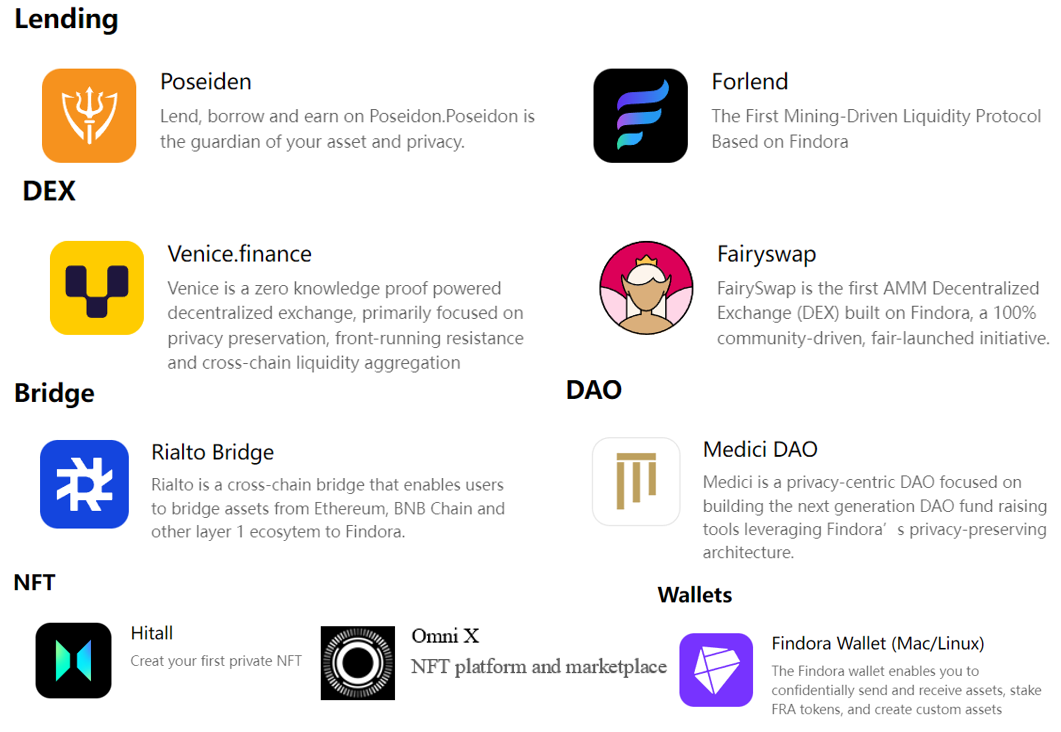
In addition to the aforementioned privacy public chains with a certain number of Dapps, this sector also includes many privacy networks that are still in the "ecological pioneering" stage, such as Nym, Aleo, Iron Fish, Phala Network, Manta Network, APRA Chain, and PlatON.
Although the overall development progress of the privacy sector is slow and the ecosystem is small, some privacy public chains have already launched ecosystem funds or organized hackathons to strengthen ecological construction. For example, Secret Network has launched a $400 million ecosystem fund, Oasis Network has introduced a $200 million ecosystem fund and held hackathons themed around DeFi 2.0, GameFi, and Web3, while some privacy middleware protocols are also actively promoting ecosystem development, such as Automata Network, which has launched a $20 million ecosystem incentive program. With the further development of the crypto industry, the gradual maturation of related technologies, the rapid growth of on-chain data, and the increasing importance users place on privacy, the privacy sector may accelerate its progress.




